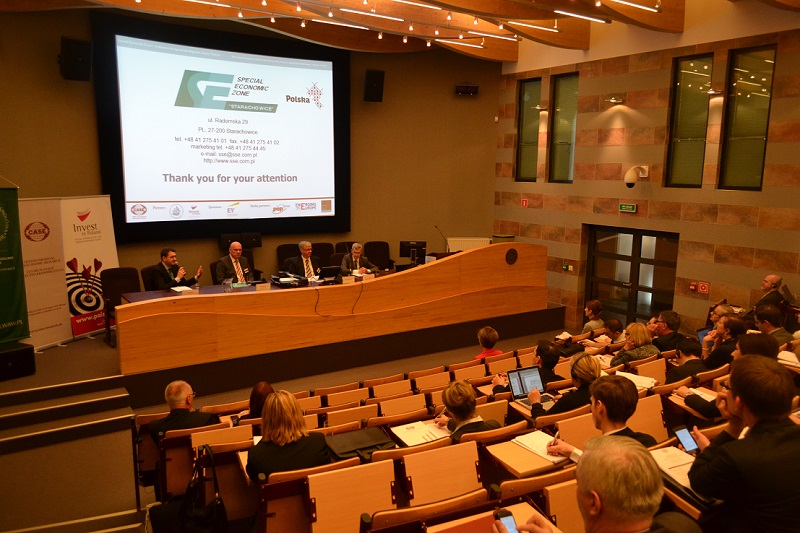Can Poland afford not to have Special Economic Zones?
Academics and representatives of Special Economic Zones (SEZ) from Poland and abroad discussed benefits and challenges related to special economic zones during a two day conference in Warsaw. It was agreed that SEZs do not solve all economic problems of countries, but they significantly contribute to regional development. It was the first conference dedicated to SEZ issues only, that gathered either academics, and NGOs and business representatives.
Christopher Hartwell, President of CASE- Center of Social and Economic Research, noted that SEZs are "small countries in large countries” and they influence positively functioning of the host country through effective self-organization, a better observance of property rights and less corruption.
Adam Ambroziak from the Warsaw School of Economics showed in his analysis of the influence of SEZs on Polish poviats, that medium-developed regions are the ones which get measurable benefits, whereas an impact of SEZs for rich and poor regions is hardly noticeable. Katarzyna Kopczewska from the Faculty of Economic Sciences of the University of Warsaw presented an analysis according to which SEZs do not contribute to a significant improvement of the financial situation of local governments. At the same time Andrzej Cieślik from the University of Warsaw pointed out that the emergence of SEZs in the early 1990s in Poland was due to local politicians’ lobbying, who hoped for a quick economic recovery in regions affected by unemployment after 1989. In the opinion of Radosław Pastusiak from the University of Lódź, 9 out of 10 investors would invest in present SEZ regions even without the Zones being established there.
However, Paweł Tynel from EY said that Poland cannot afford not to have Special Economic Zones. In the 14 Polish zones there are about 2000 companies, which generated 300 000 jobs so far. Cezary Tkaczyk, CEO of the “Starachowice” SEZ, said that since the establishment of the Zone, unemployment in Starachowice fell from 28.6% to 14.9%.
The conference also welcomed speakers from South Africa, India, Lithuania and the USA. They admitted that there is no recipe for a successful SEZ. When creating a SEZ, it is important to take numerous factors into consideration: infrastructure, geography, administration, and local specifications. Moreover, each country is facing specific problems. For example, the main obstacle to the development of SEZs in India is a weak infrastructure, questionable labour laws, and a too small involvement from women.

Klaus Otto Junginger-Dittel, representative of the European Commission, drew the audience’s attention to the new EU recommendations regarding SEZs, which suggest giving more support to the weakest SEZs (eg. in Eastern Poland), and which enhance the importance of the development of local initiatives. The new regulations question the tax reduction legitimacy as the tax reliefs don’t solve the issue of business financing neither cover the costs of fails investments. According to the EC a loan guarantee and the possibility of receiving a grant seem a better solution.
***
The conference “The Political Economy of Place-Based Policies with a Focus on Special Economic Zones” was organised by CASE – the Center for Social and Economic Research, the Warsaw School of Economics, and the Polish Agency of Information and Foreign Investments (PAIiIZ). The event took place on 23-24 April in Warsaw.
Media partners:
Sponsors:
There are 14 Special Economic Zones in Poland. The average investment growth is 215 zł for 1 second (according to the Ministry of Economy). At the end of 2014, SEZs provided about 300 000 jobs.






